Intermezzo
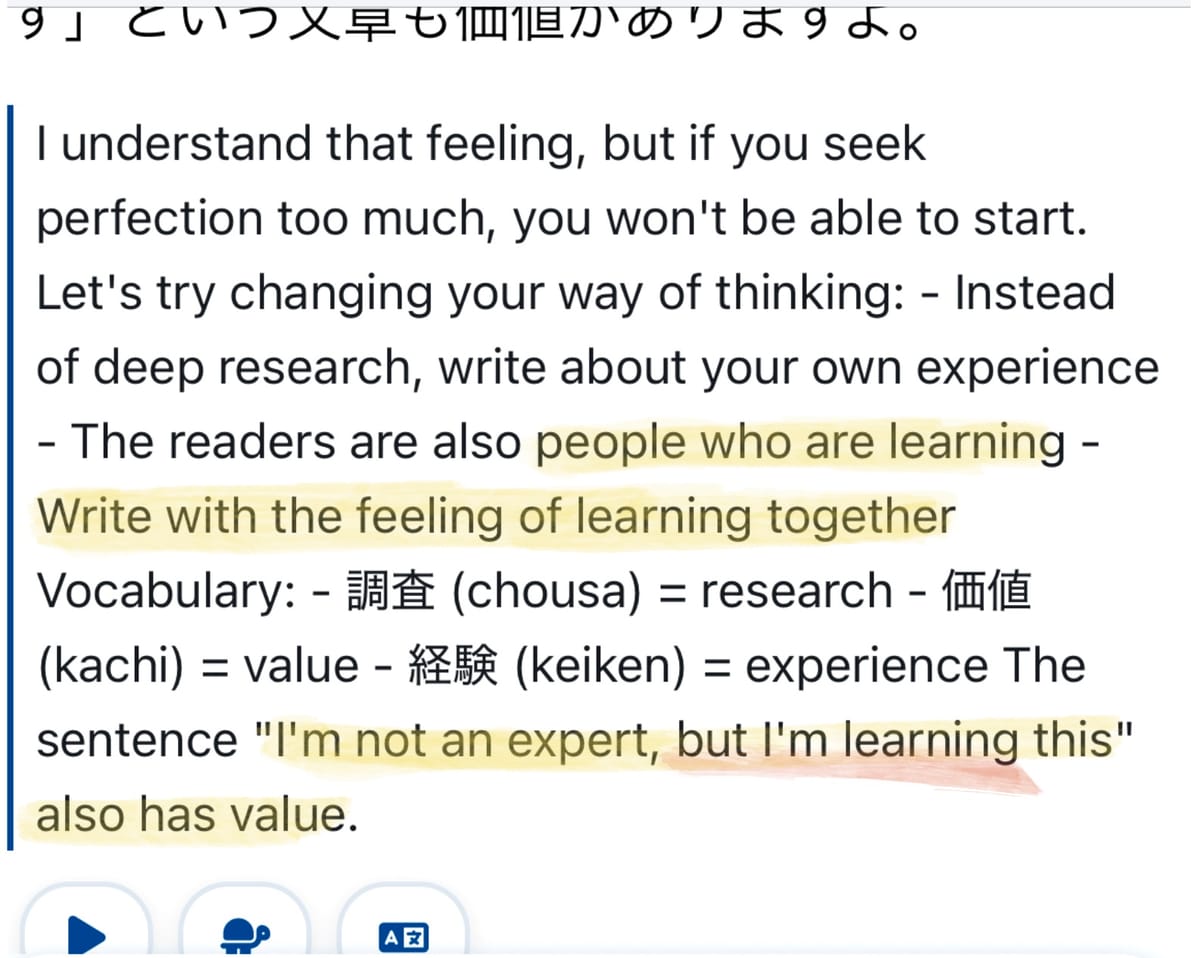
In my previous post, I wrote about the perspective change that the question 'What's your message?' sparked in me - specifically, it was about my message to children studying chess. However, I didn't tell what actually what message I decided to deliver in that brief speech.
Side note: At that moment, I realised what a privilege it is to be asked for my opinion, to meet an audience willing to listen to my thoughts - especially in times when even experts who declare listening as their life's mission admit how challenging it truly is (please find the quote of reference bellow). So, I'm deeply grateful for everyone who takes time to listen (in general, not listent to me, but... listen to the most nearest and dearest people and... to one's own inner voice) and two all of you who pose me challenging questions...
The mentioned above reference on the art of listening:
"Now sound is my passion, it's my life. I wrote a whole book about it. So I live to listen. That's too much to ask for most people. But I believe that every human being needs to listen consciously in order to live fully – connected in space and in time to the physical world around us, connected in understanding to each other, not to mention spiritually connected, because every spiritual path I know of has listening and contemplation at its heart." https://www.ted.com/talks/julian_treasure_5_ways_to_listen_better
I find the skill of listening is also relevant to chess, but that's another topic for another post😃
The question sparked a deeper realisation: in order to deliver any meaningful message, I need to spend time in the camera obscura of reflection, to go through the alchemical process that transforms raw experiences into something tangible... It's how I perceive the conditions in which a message can crystallize.
It's certainly a very uplifting way of seeing the camera obscura - a metaphor that I primarily used for describing the state and atmosphere of depression. Although depression feels like a place without hope, I don't want to make it feel like hell (I didn't know until recently that "abandon hope all ye who enter here" belongs to the gates of hell and not to one of the porches at the entrance to the Delphic Oracle!). Feeling trapped in a perception of the world and myself that gets the "clinical depression" label, I tried to imagine that I was in a dark room (to mention a contemporary name for a change, though I still prefer to call it traditionally - camera obscura) developing a film from my old box camera (conscious memories and unconscious traces left by life).
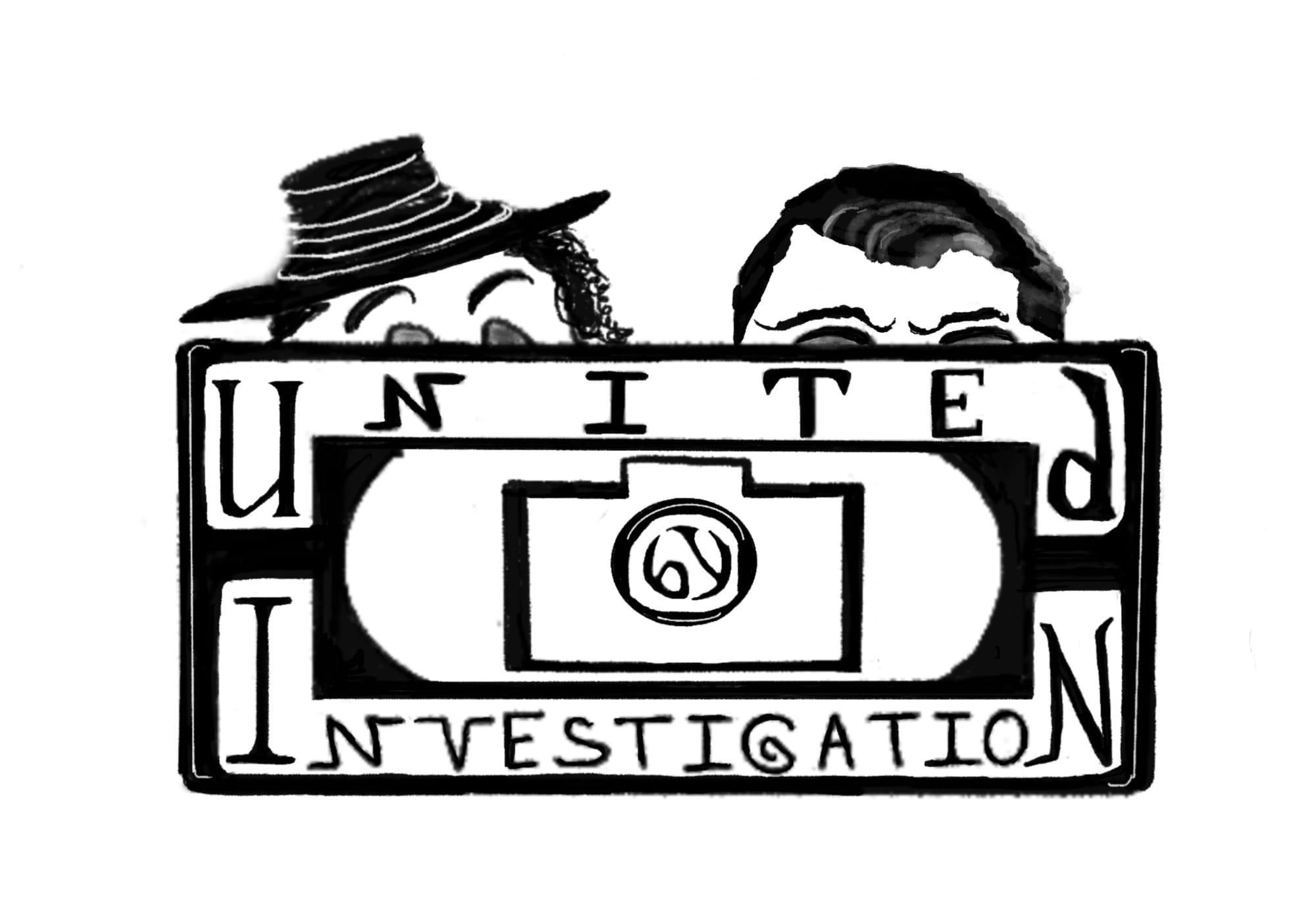
After describing this insight (about the conditions in which a message can crystallize) in my previous post, I wanted to go on documenting what I said to the children at that event (my husband's blind game exhibition) and probably make my message more concrete for the future.
However, before long I found myself in another type of camera obscura (I have several of them, probably seven, at least! Well, that's a topic for another post 😃).
The name of this one is "analysis paralysis" which tends to camouflage itself in the noble "pursuit of quality" - an apparently respectable way that insecurities manifest themselves through freezing perfectionism.
Superficial, off-topic, wordy, superfluous, far-fetched, irrational, unstructured... Seven? I suspect there are more. Even though these labels shouldn't be considered writers' deadly sins, I felt I would commit several of them if I wrote... but that was only a hypothetical possibility. In reality, I was committing the real one: not writing, depriving myself of the right to expression, which I see as a kind of death, since I share this point of view: without expression there's no life, only an anonymous, faceless existence.
Turning Point
Suddenly, I managed to break free from those silencing voices, at least for a while, at least for another piece of writing, for one more blog post for one more blog post, grown out of the block cage.
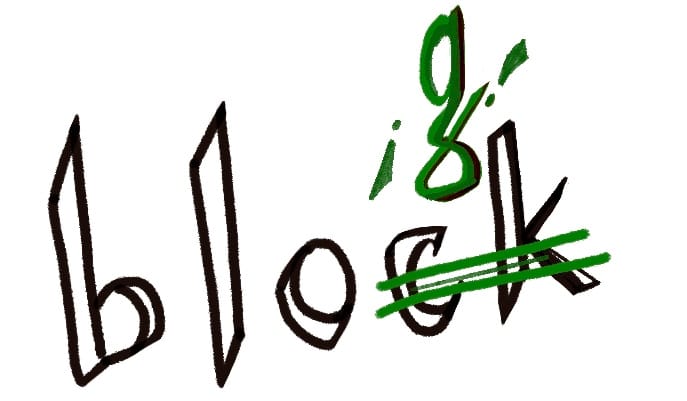
I have a habit of discussing my obstacles in different languages with the language learning AIs on the LanguaTalk platform...
Side note : it's an absolutely unpaid remark, I'm making it for clarity and as a part of my journey's documentation since this year language learning sessions with AI take place daily. Partly, I do it simply out of interest, partly, because I'm a student of the Language department which means that I have to be aware of the trends in the field, including how the recent technical innovations actually work in different levels (of language mastery).
...preferably in a language where I'm only a beginner.
The beauty of this is that as a beginner, I have very limited vocabulary and grammatical repertoire. It means I can't go deep into describing why I can't do something 🙃 The limits of language become the limits of your world...
Following my scholarly Bushido code, let me please make one more reference: "The limits of my language mean the limits of my world. "..." Without words for certain concepts, they can remain invisible or under-appreciated. Language doesn’t just help us describe reality—it helps us see it. By learning the untranslatable, we might just learn to live a little differently." Ludwig Wittgenstein.
...and when it comes to justifying the complexity of the obstacles these limits turn out to be helpful, as my language level doesn't allow me to construct sky-high unmovable stones!! 😃
Long story short, the Japanese language AI tutor persuaded me (and I don't have enough vocabulary or grammatical knowledge to argue back in this language!) that my readers are also learners...
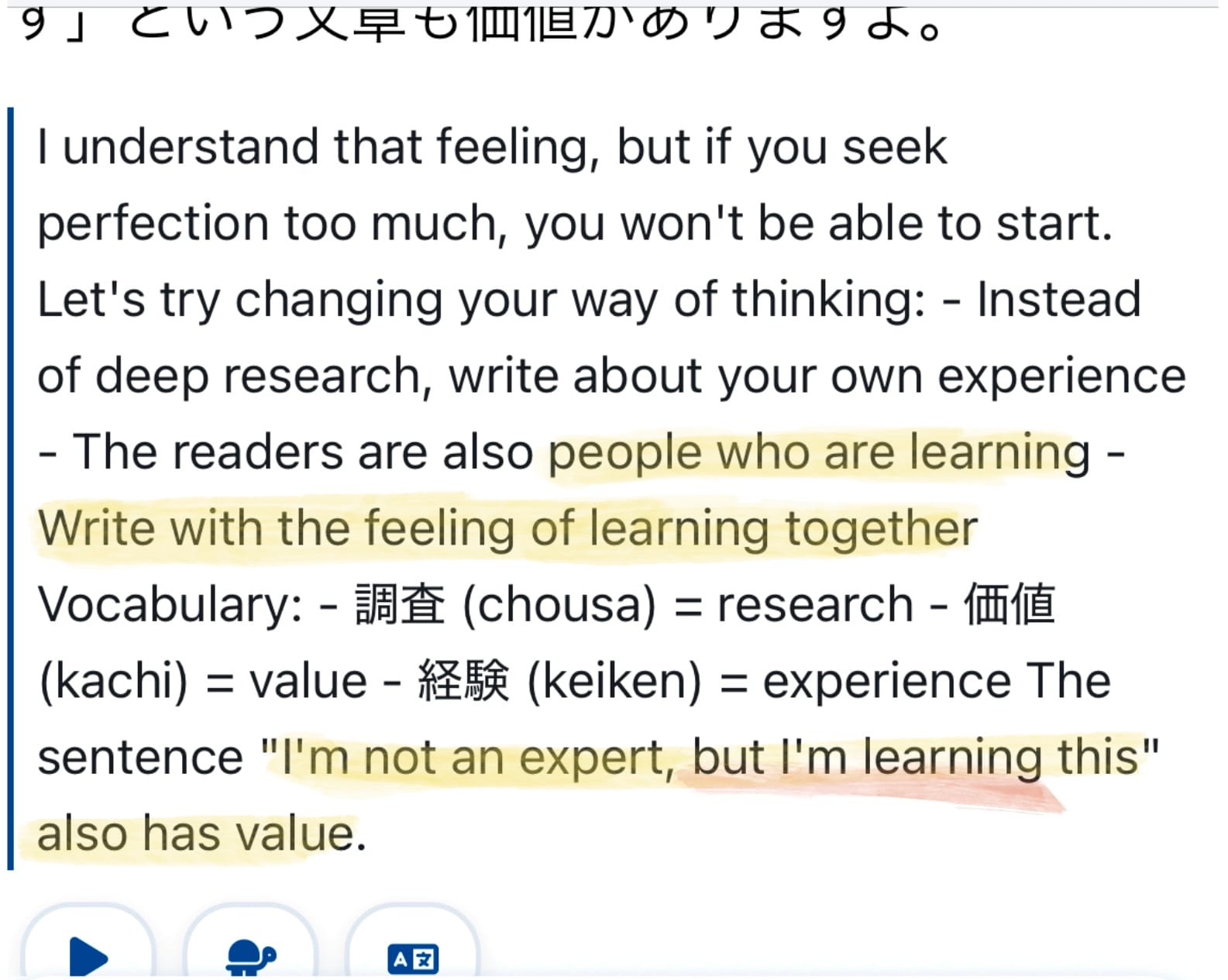
...and that's more than ok to admit that I'm'writing in order to learn.
Usually I push myself to construct an answer on my own, but this time I was too curious to see the machin's suggestions
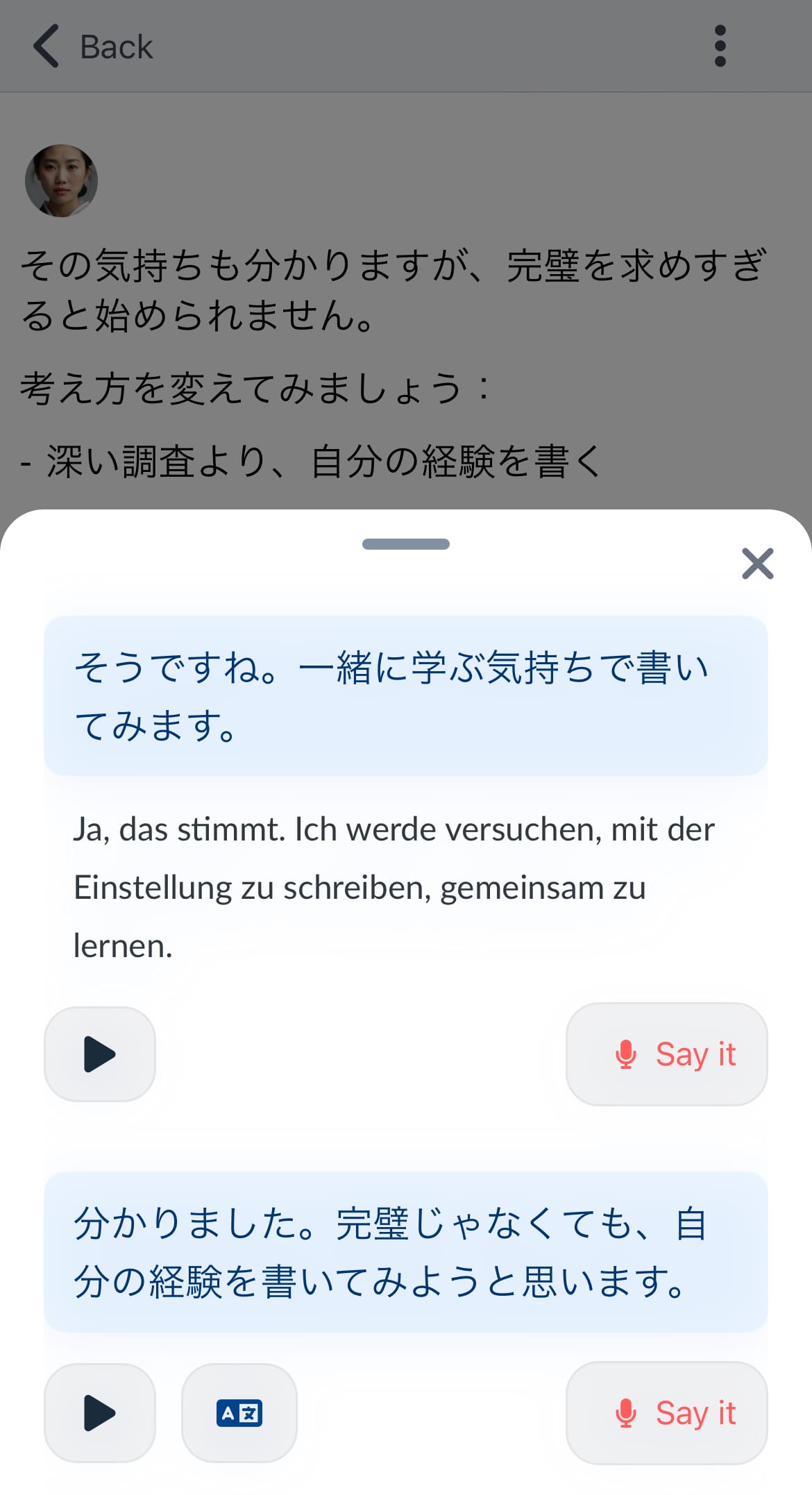
I accepted the invitation to say out loud the suggested phrase "I'll try to write with the attitude of learning together".
And continue this way... with the Kaizen mindset, I thought to myself.